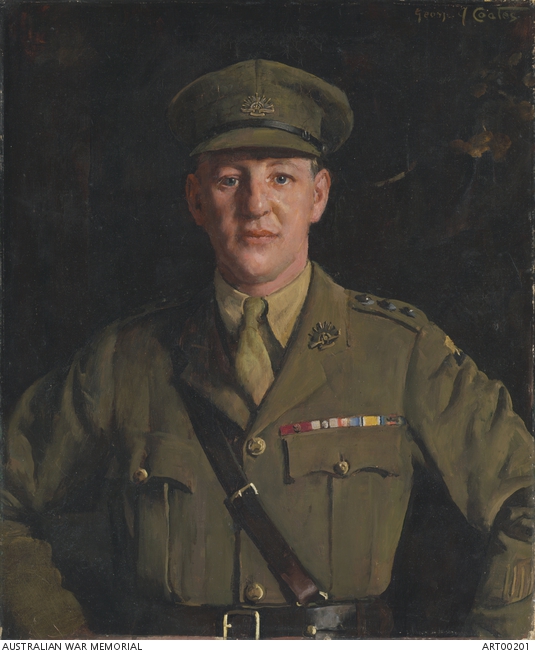Fifty Australians - Bert Jacka
A great Australian hero. Having already won the Victoria Cross on Gallipoli, in France Jacka “performed the most dramatic and effective act of individual audacity in the history of the AIF”.
Captain Albert Jacka, VC, MC (and Bar) (1893–1932)
Bert Jacka enlisted in the 14th Battalion AIF in September 1914, aged 21, and went ashore at ANZAC on 26 April 1915. A few weeks later, on 19 May, he immediately became a national hero when he won the first Victoria Cross awarded to an Australian in the war for his part in repelling a Turkish counter-attack.
In August the following year, at Pozières, Jacka’s position was overrun. With only a handful of men – who would all become casualties – he straightaway led a counter-attack. German fire knocked him to the ground a couple of times and he received some near-fatal wounds. Still, he threw himself against the enemy and was inspirational in fierce hand-to-hand fighting, killing or capturing several of them. Other Australians were drawn into the fight and the ground was retaken. For this “individual audacity” Jacka was awarded the Military Cross (MC).
The following April Jacka received a second MC for his bravery in preparing the jumping-off line for the attack at Bullecourt and capturing an enemy patrol. Charles Bean later wrote: “Everyone who knows the facts, knows Jacka earned the Victoria Cross three times.” Although he did not rise beyond the rank of captain and was often in conflict with the more senior officers, his fame was such that his battalion became known as “Jacka’s Mob”.
In 1918 this heroic officer was badly gassed, effectively ending his fighting career. On return to Melbourne, he was met by the Governor-General and feted at the Town Hall. To Bean, Jacka was “a curious character”: “He did not minimise his actions afterwards in talking of them. But unlike many other men who won the VC … it left him afterwards as he was before.”
Jacka eventually established an electrical goods firm, and in 1929 was elected mayor of St Kilda. But he fell on difficult times. His marriage failed, the business collapsed in the Depression, and his health declined. Jacka became seriously ill and died on 17 January 1932. His coffin lay in state in ANZAC House in Melbourne; his funeral procession was led by a thousand veterans and eight holders of the Victoria Cross were pallbearers.
Jacka in camp, possibly at Mudros, about the time that he won the Victoria Cross in 1915.
A decorated and veteran officer, Captain Jacka looks over a plan model shortly before the battle of Messines in June 1917.
- Home
- Previous: William Holmes
- Next: Olive King


